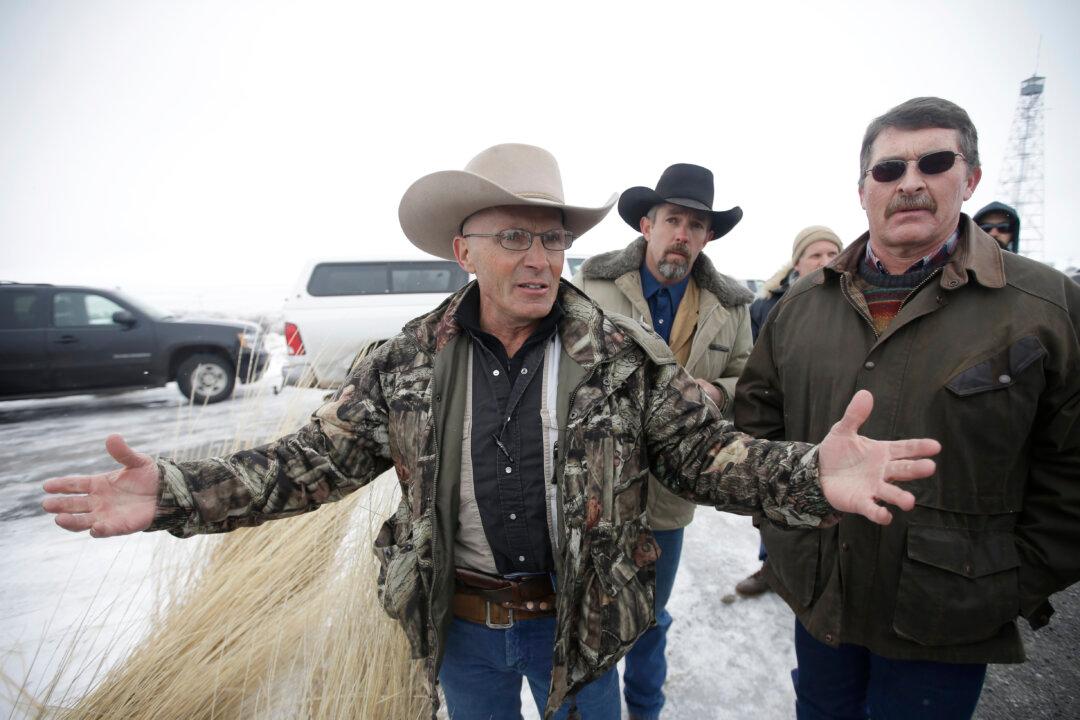PORTLAND, Ore.—FBI agents who were at the scene of the shooting death of a key figure of the occupation of an Oregon national wildlife refuge are under federal investigation for not disclosing they fired two shots that missed Robert “LaVoy” Finicum.
Oregon law enforcement officials said Tuesday that two Oregon state troopers were justified in shooting Finicumon Jan. 26 because he failed to heed their commands to surrender and repeatedly reached for his weapon.
Finicum was struck by three rounds fired by state troopers after he got out of his truck. The troopers also shot three rounds into Finicum’s truck as it was barreling towards them, officials said.
FBI agents who were on the scene failed to say that as Finicum was getting out of his truck, they themselves fired two rounds.





